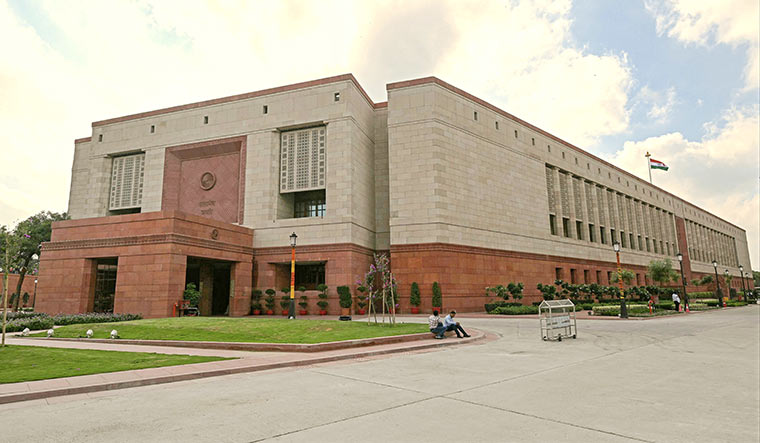The 1984 Lok Sabha elections were historic: Rajiv Gandhi led the Congress to victory in 414 seats, a record that remains unbeaten. The election was remarkable for another reason―the large number of first-time MPs who found a place on the treasury benches. They came from diverse backgrounds, from superstar Amitabh Bachchan to hockey legend Aslam Sher Khan. One-third of the Congress MPs were making their debut in the Lok Sabha. It was perhaps the first time that newcomers had made such a splash in the lower house.
The number of first-time MPs in the Lok Sabha has become a statistic that is regularly measured and evaluated. This time, as many as 280 MPs have been elected for the first time. That is 52 per cent of the total number of MPs, or more than half the house. In the previous Lok Sabha, 267 members were first-time MPs. In 2014, when there was a change of government, the churn in the lower house was far more intense, and 314 members were first-timers who constituted 58.8 per cent of the house strength.
Experts say that on an average, around 50 per cent of the house undergoes an overhaul after Lok Sabha elections, with parties seeking to beat anti-incumbency by fielding new faces. According to a study done by the Parliamentary Research Service, as many as 45 per cent of the BJP MPs are first-timers. For the Congress, 60 per cent of its MPs are newcomers. For both the Telugu Desam Party, which has come back much stronger, as also the Nationalist Congress Party of Sharad Pawar, which proved itself to be resilient in the elections, three-fourths of their MPs are newcomers. The same is the case with the Samajwadi Party, which trumped the BJP in a big way in Uttar Pradesh.
In the churn that the numbers reflect, first-time MPs from diverse backgrounds and varying degrees of political experience and proximity to politics have been elected to the Lok Sabha. There are faces from showbiz, such as Kangana Ranaut and Arun Govil, there is cricketer-turned politician Yusuf Pathan and there is the former High Court judge Abhijit Gangopadhyay. There are those who have worked as grassroots-level politicians and have climbed the ladder, such as Mitali Bag, who was a district council member and won from Arambagh in West Bengal, or Bharti Pardhi, who was earlier a sarpanch and then a municipal council member before getting elected to the Lok Sabha from the Balaghat seat in Madhya Pradesh.
On the other hand, there are several young MPs who seek to take forward the political legacy of their parents, such as Bansuri Swaraj, daughter of the late BJP stalwart Sushma Swaraj, or Priya Saroj, who avenged her father Tufani Saroj’s defeat in the 2014 elections by winning from the Machhlishahr constituency in Uttar Pradesh, or Chirag Paswan, the son of the late dalit leader Ram Vilas Paswan, who has found a place in the Union cabinet.
There are upcoming stars such as dalit leader Chandrashekhar Azad, or Geniben Nagaji Thakor of the Congress who ended her party’s ten-year electoral drought in Gujarat or Rajkumar Roat of the Bharat Adivasi Party who won from Banswara in Rajasthan, where Prime Minister Narendra Modi had made the controversial mangalsutra speech.
If there are many young MPs among the first-timers, including seven who are under the age of 30, there are also veterans who have entered the Lok Sabha for the first time, such as Piyush Goyal or Bhupender Yadav, who have been ministers in the Modi cabinet.
THE WEEK profiles ten first-timers, who are distinct because either they come from an apolitical background or have made their way up from grassroots politics, and if they are from a political family, have made a mark of their own this time.


